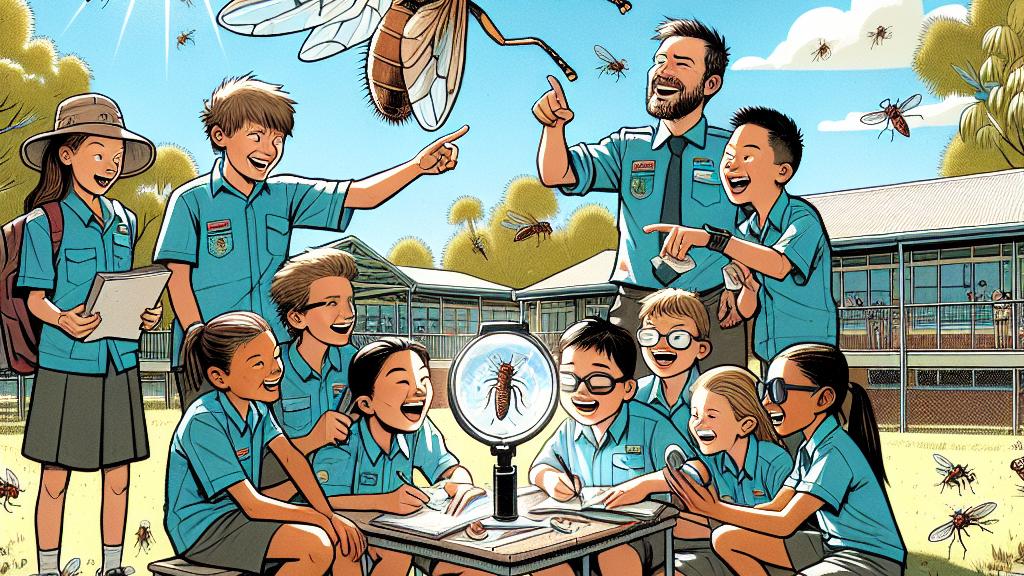Citizen Science Inspires Insect Discoveries in Australia
Overview
- Queensland students significantly contribute to exciting new insect discoveries.
- Citizen science plays a vital role in enhancing our understanding of biodiversity.
- Dynamic collaborations between schools and scientists yield extraordinary results.

Insect Discovery in Australia: A Journey of Curiosity
In the sun-kissed state of Queensland, Australia, an exhilarating citizen science initiative is igniting a spark of curiosity among school students as they dive into the fascinating world of insects. Remarkably, a staggering 60% of the insect species in Australia have yet to be named—a fact that passionate Year 4 students from Yeronga State School are eager to change. During a thrilling expedition in their schoolyard, they discovered a tiny fly that had undertaken an incredible journey from a botanical garden in Portugal, traveling an astonishing 18,000 kilometers to find its way into their outdoor classroom! Under the guidance of their devoted teachers and inspiring scientists, these enthusiastic young explorers engaged in the meticulous art of insect identification, eagerly crafting theories about how this adventurous little fly might have managed such a grand journey.
The Ripple Effect of Community Involvement
The discoveries made by these eager young scientists highlight the profound impact of citizen science on local communities and the importance of engaging in scientific research. In a remarkable twist, students from other schools also participated in the adventure, collecting and accurately identifying a previously unnamed wasp—a species that preys on the notorious fall armyworm, a persistent pest that threatens Australian crops. By collaboratively naming this newly identified wasp, these students not only enriched the scientific community's knowledge but also provided crucial data that can aid local farmers in managing this agricultural issue. This collaborative effort showcases how citizen science engages students in meaningful ways, connecting them to real-world environmental challenges and empowering them to take an active role in their communities.
Empowering the Next Generation of Environmental Stewards
The inspiring Insect Investigators program exemplifies the powerful connection between educational initiatives and groundbreaking scientific research. Educator Clare Triggell, alongside the passionate entomologist Dr. Andy Howe, has spent over three transformative years working together to create hands-on, interactive learning experiences that excite and motivate students. Their partnership transcends mere insect naming; it fuels a genuine love for discovery, instilling a sense of responsibility toward environmental conservation in future generations. These dynamic programs, deeply rooted in practical applications, not only captivate students' imaginations but also nurture a commitment to preserving the planet's extraordinary biodiversity. As these young scientists continue their journey of exploration and innovation, the future holds endless possibilities for exciting discoveries that will deepen our understanding of the natural world.

Loading...